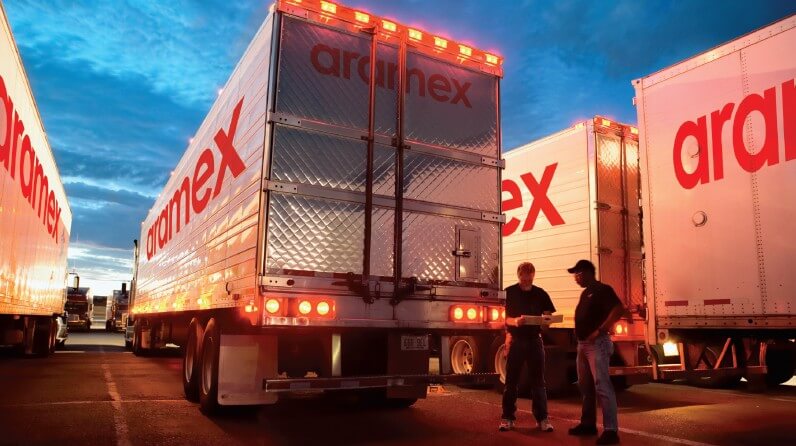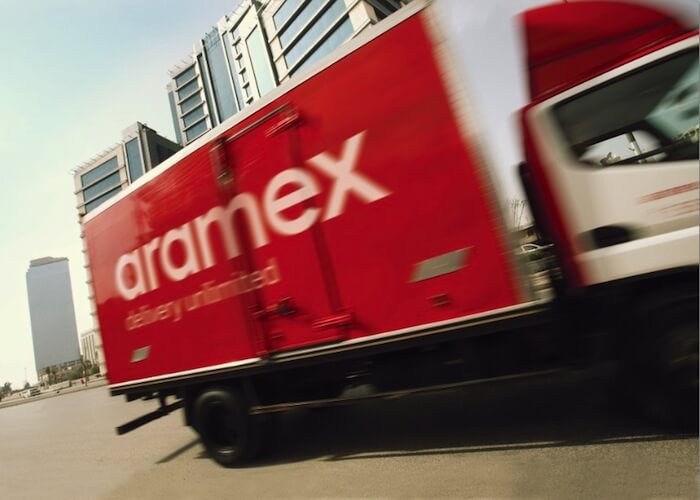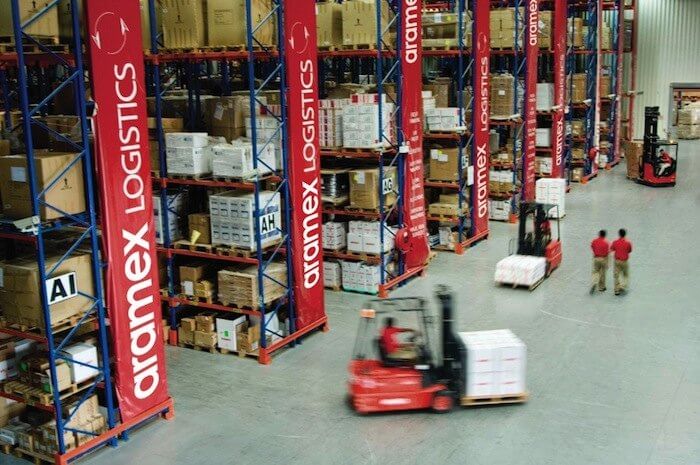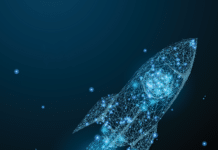Insights from Fadi Ghandour, CEO of Aramex
Many brands have made their mark on the region, yet, undoubtedly, the bold red lettering of the Aramex logo can be claimed to stand for much more than just another service provider. Aramex, since its establishment in 1982, has consistently worked its way towards not only becoming a regionally acknowledged business but rather an internationally recognized logistics and transportation player. Today, there are over 310 Aramex offices in 200 major cities worldwide and the network is continuously growing and expanding, particularly in emerging markets. People from every part of the world work under the Aramex banner, such diversity in backgrounds and outlooks enriches discussions, perspectives and willingness to experiment. Today, the Aramex family comprises of over 8,100 people from 81 nationalities. What is now a multinational company began, like so often, with the vision of one man: Aramex CEO and founder, Fadi Ghandour, shares his visions and insights after over a quarter of a century of building a globally recognized Arab brand.
Few visitors to the Arab world would have missed the sight of bright red trucks and motorcycles of Aramex, one of the best and most widely recognized Arab brands. Both for its entrepreneurial history and for its brand development, Aramex is a story to learn from. Founded in 1982 as an express operator, it is now one of the leading providers of logistics and transportation solutions, both regionally and globally. Inextricably linked to the founder and CEO of Aramex, Fadi Ghandour, the company’s success story is a great example for a strong Arabian brand with an inherent global DNA. Ghandour says: “When we started in 1982, we saw an opportunity to serve and invest in the Middle East. We were able then to leverage our local knowledge and experience, which entailed an intimate understanding of the customer behavior and the changing business needs in this part of the world, and through a tedious learning process, we were able to continue extending this to the emerging markets in which we operate today.”
“We believe that focusing on our people by enabling them to innovate, and adopting a flexible mindset, one which allows us to seize opportunities and act in an agile manner, are key factors to delivering excellent service.” Aramex realized this as it took on one of its earliest challenges since its inception: To deliver a service that is on par with international standards. “Today, the challenge we face is to strike a balance between delivering customized solutions for the local market needs while maintaining the overall Aramex brand experience,” adds Ghandour.
Going back to the company’s beginnings, Fadi Ghandour recalls that it started like any entrepreneurial venture, with “a creative solution to fulfill a market need”. The company’s niche proved to be the lack of express courier services in the Middle East in the early 1980’s. But, despite the many opportunities and resilient outlook, there was no lack of challenges on the way. Ghandour admits that “throughout our life as a company, challenges came, both expected and unexpected, that eventually forced us to rethink a certain course or challenged us to find new ways to do things.”
“Ultimately, it is a long-term journey of trial and error, of learning from our mistakes and adapting and adjusting to new market needs. The point is that we are in the business of building: from infrastructure and networks, to communities and organizations; that’s what entrepreneurs do, and what we continued to do throughout the history of Aramex.”
For example, in 2003, when DHL bought Airborne Express, the IT team at Aramex was finalizing a new web-based tracking system to replace the one which Airborne shared with partners in its transportation alliance. Thanks to its foresight, Aramex was able to replace Airborne’s system with a better one, enabling it to assume an instrumental role in establishing the “Global Distribution Alliance”, an international alliance which brings together over 40 express and logistics providers from around the world.
When asking Fadi Ghandour whether he thinks establishing a brand in the Arab world entails special challenges, he says “The ingredients for success in the Arab world are the same as in rest of the world; delivering on the promises that you make to your stakeholders. Our promise to our customers is to deliver customized, quality solutions that meet their needs.’ He adds: ‘Being passionate about continuously coming up with new ways to create value within your organization, industry and society at large is an essential ingredient to successfully build a strong brand. It’s crucial that you sustain the perseverance needed to overcome obstacles and failures, the patience to continuously improve and refine your processes, services and brand, and the creativity to develop innovative solutions to new challenges.”
Aramex became the first Arab company traded on the NASDAQ between 1997 and 2002; a feat that stands testament to its resilience. For Fadi Ghandour, looking back, going public helped Aramex to gain momentum and to increase their brand equity by greatly increased visibility. Subsequently, the move reinforced the company’s ability to raise capital, which gained investor trust. In 2002 the company was brought back into private ownership through the management buyout of Abraaj Capital only to go public again in 2005, this time at the Dubai Financial Market. Ghandour believes that during these transitions, it was crucial that the delisting was handled with complete transparency and accountability. All stakeholders were informed of the move and the company explained the business objectives and the value behind it.

When asked about the company’s branding strategy and corporate culture throughout the years, the CEO points out that Aramex corporate culture and brand were built purposefully over the years, reflecting of the company’s values and sustainable business approach, and the result of continuous efforts practiced on a daily basis by its people.
After being in business for more than 28 years, Aramex offers a wide range of services from integrated logistics to e-Commerce solutions. Throughout the shift from a “courier company” to a more inclusive “global logistics and transportation solution provider”, Aramex remained true to its values: emphasizing a stakeholder view to management in its business model, placing mind over matter; investing in people and technology rather than heavy assets, adopting a federal system that allows autonomy and encourages innovation amongst its people and asserting customization and flexibility over standardization. Ghandour adds that the company’s commitment to support, nurture and empower its people, to invest in communities and to preserve the environment is how it chooses to operate and exist; it is deeply embedded in Aramex’s identity and business model.
Aramex, like many other companies has very diversified activities, and one could question the reality of unifying all business operations under one umbrella. Ghandour explains that this is not so: Aramex’s business units, which they call stations, operate under one global brand and deliver the same brand experience, backed up by a common corporate culture and shared core values. All of the company’s stations embrace a mindset of customer-centricity, service excellence, entrepreneurship and empowerment as core elements of their business strategy. “At the end of the day, our people are the ambassadors of the Aramex brand – as front-liners, knowledge workers, entrepreneurs, and citizens”, says Ghandour, when asked about the involvement of employees in the company’s branding. He believes that Aramex’s employees play a pivotal role, as they are the guardians of the corporate culture, values, and ultimately the brand.
To ensure that the brand values are properly distilled into the daily operations of all stations, Aramex celebrates best-performers according to customer service, operational excellence, environmental impact, financial performance and employee satisfaction and training. Ghandour added “This platform values each and every employee’s hard work, and publicly recognizes the accomplishments of each station, while the collaborative culture of the organization inspires stations to work together to come up with new solutions that are applied globally and localised to each country. Our internal culture is an essential part of our brand, as it provides a platform for our people to innovate, learn and emerge as entrepreneurs and citizens that build and deliver value to within and outside the organisation.’

But awards are something that Aramex has plenty to boast about: Aramex is a multiple award-winner. Amongst the prizes on the shelf are awards such as Gulf Brand of the Decade and UAE Super-brand, as well as The Green Apple Award for Environmental Best Practice and British International Freight Association Environmental Award. When asked about his recommendation for emerging Arab brands on the international market, Fadi Ghandour puts it clearly: “I believe in the potential of emerging Arab brands and the ability of entrepreneurs from this region to compete on a global scale”. He adds: “Entrepreneurs have to create value inside the organization and inside society; that value can have social or monetary impact, it can change the way we work or produce something, or deliver a public or a private service. He continues to say that most importantly, people must learn to overcome their fear of failure; to experiment with new solutions, to take risks, question the status quo, mobilize resources, to engage with other citizens and share knowledge.”
A quarter of a century is a long time and a respectable proof for continuity for any company. When asking Fadi Ghandour whether it all turned out as he had hoped he says: ‘You can never draw a scenario and stick to it a hundred percent. When we first drafted our mission, we concentrated on our positioning as a courier company, with a focus on customized services and corporate activism. Our values stayed the same over the years but eventually as we grew, our statement evolved to reflect our global footprint and our range of new services. Our new mission statement – “to be recognized as one of the top five global logistics and transportation companies” – encapsulated our evolving ambitions, and affirmed our role as active global corporate citizens.’
Thus, looking back on Aramex’s history, Fadi Ghandour’s final recommendation, when asked how he would advise a young, emerging Arab brand, is evident: “Businesses have to focus on the daily task of delivering what their brand promises – that is the key to success.”
Tharawat Magazine, Issue 8, 2010
















